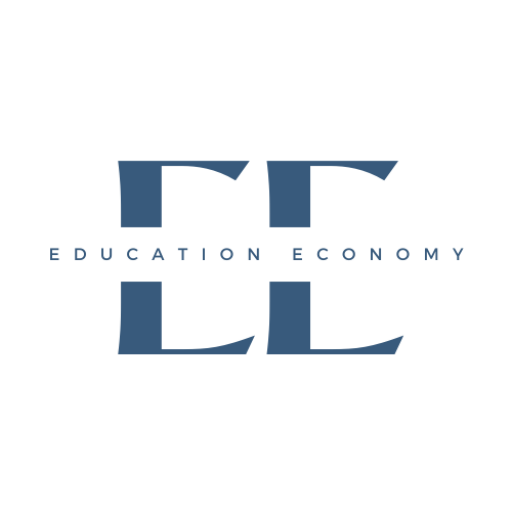Preventative Measures to Adversity (PMA Framework)
What is the Preventative Measures to Adversity (PMA) Framework?
The PMA Framework is a research and data informed framework designed to support Education Professionals to respond to the complexities faced in daily practice and mitigate the risk of diminished health and wellbeing outcomes. It is a context driven framework and integrates with existing education system, school and workplace frameworks to make explicit links between teaching, learning and wellbeing domains, improving outcomes for all.
The PMA Framework applies an adversity lens to addressing school and workplace challenges, understanding that the way in which we respond to adversity in work and life can have an impact on the health and wellbeing of all individuals involved.
Why Adversity?
In the face of adversity, our response becomes the catalyst for growth, resilience, and transformation. How we navigate challenges can shape our lives. Understanding the significance of our response to adversity, highlighting its importance in fostering personal development, building resilience, and achieving success can have an impact on our quality of life. Understanding the role adversity plays in childhood development can help Education Professionals develop strategies to prevent and address the effects of childhood adversity.
Why Focus on Preventative Measures?
Focusing on preventative measures allows the Education Professional to respond to challenges before they become more severe and costly. By investing resources in prevention rather than waiting for problems to arise, we can mitigate risks, reduce negative impacts, and promote long-term educational and wellbeing outcomes.
Preventative measures enable us to take proactive steps to minimise or avoid harm, promote early detection and intervention, and establish a foundation for resilience. By focusing on prevention, we can create healthier, safer, and more sustainable schools, workplaces and communities, leading to improved quality of life for individuals and a more sustainable future for generations to come.
How does the PMA Framework support the process of improving teaching and learning outcomes for all?
Understanding Adverse Childhood Experiences (ACEs) and the impact of adversity enables Education Professionals to adopt a trauma-aware approach in the school and workplace environment.
This approach focuses on creating a teaching and learning environment that is safe and supportive and addresses the needs of Education Professionals, children and young people who have experienced or may experience adversity and trauma.
Knowledge of adversity helps Education Professionals develop deliberate and meaningful relationships with their colleagues, children and young people. By recognising and understanding the challenges we can all face in the workplace and for students in the learning environment, we can be better placed when building relational trust, showing empathy, and providing responsive support when needed.
Adversity can impact a child or young persons’ psychological and physiological functioning, making it essential for Education Professionals to differentiate their instruction and provide individualised support. By considering the unique needs and backgrounds of children and young people, Education Professionals can customise the learning experience to ensure equitable access to education for all.
Knowing about ACEs and adversity highlights the importance of integrating social-emotional learning into the curriculum. By focusing on developing a child and young persons’ emotional intelligence, self-regulation skills and resilience in connection to the Curriculum; Education Professionals can equip them with the tools to navigate challenges, manage stress, and engage in positive relationships.
Understanding the impact of adversity encourages collaboration between Education Professionals, families, and communities. By working together, Education Professionals can gather information about a child or young persons’ experiences, provide a responsive educational program and contribute to a cohesive network of care. Collaborative partnerships ensure that the school environment and workplace is aligned with the child or young persons’ needs as well as the needs of the Education Professional to ensure improved teaching and learning outcomes.
The PMA Framework refers to ‘contextual assessment' as the practice of designing and implementing assessments that are appropriately aligned with the learning goals, instructional methods, and the abilities and needs of the child and/or young person at the point in time and with consideration of the context in which they are living and learning.
This also extends to the emergent learning of the Education Professional and the support in place to develop the knowledge, skills and demonstrable practice on the ground.
What does implementation look like?
At the core of our implementation model lies a deep understanding of the individual needs of the Education Professional, not just those of the learner. We recognise that Education Professionals are the heart of any successful educational initiative.
The PMA Framework is supported by Implementation Science methodologies and utilises Multi Tiered System of Support, otherwise referred to as MTSS.
Preventative (Universal)
Through a comprehensive training program, all Education Professionals (EPs) will be equipped with the latest research and data-informed strategies to identify and address potential risks to health and wellbeing in real-time.
Our framework empowers EP's to mitigate risks before they manifest. By staying one step ahead with data-driven insights, EP's will be able to foster a supportive environment that nurtures physical and mental wellbeing alongside academic growth.
Agile responsiveness (Targeted)
Supporting a cohort of EP's at risk of low professional quality of life, diminished productivity, and a weakened connection to their purpose.
With precise coaching on the ground and strategic consulting, we aim to reinvigorate the cohorts sense of purpose, reignite their passion, and inspire meaningful impact.
Critical Support (Intensive Individual)
Our Intensive Individual approach offers personalised and tangible support to empower Education Professionals to navigate the complexities they are being met with.
Through dedicated one-on-one coaching, we equip the Education Professional with the tools and resources they require to thrive both professionally and personally.
Interested in learning more about our PMA Framework?
Contact us now and make an enquiry.
All fees and pricing can be discussed by making an enquiry. We look forward to hearing from you.
